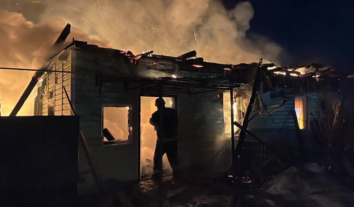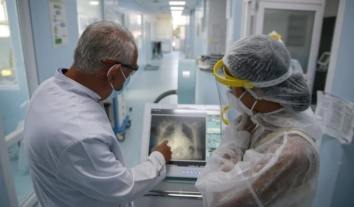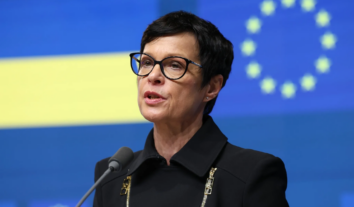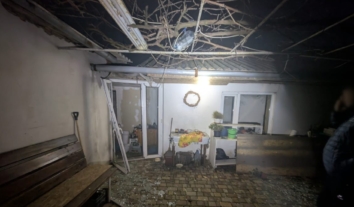Alternative Reports at the UN Committee on the Rights of Persons with Disabilities
Normal
0
false
false
false
RU
X-NONE
X-NONE
/* Style Definitions */
table.MsoNormalTable
{mso-style-name:”Обычная таблица”;
mso-tstyle-rowband-size:0;
mso-tstyle-colband-size:0;
mso-style-noshow:yes;
mso-style-priority:99;
mso-style-qformat:yes;
mso-style-parent:””;
mso-padding-alt:0cm 5.4pt 0cm 5.4pt;
mso-para-margin-top:0cm;
mso-para-margin-right:0cm;
mso-para-margin-bottom:10.0pt;
mso-para-margin-left:0cm;
line-height:115%;
mso-pagination:widow-orphan;
font-size:11.0pt;
font-family:”Calibri”,”sans-serif”;
mso-ascii-font-family:Calibri;
mso-ascii-theme-font:minor-latin;
mso-fareast-font-family:”Times New Roman”;
mso-fareast-theme-font:minor-fareast;
mso-hansi-font-family:Calibri;
mso-hansi-theme-font:minor-latin;}
Public organizations in support of people with disabilities have urged the Ukrainian government to introduce systemic changes and overcome the barriers that prevent such people from being fully included in society.
In order to have their voices heard, these public organizations presented Alternative reports to the UN Committee on the Rights of Persons with Disabilities on April 20, 2015 in Geneva.
“Civil society organizations have voiced a list of questions to the Ukrainian government which are important to answer. This list has been published on the website of the UN Committee on the Rights of Persons with Disabilities. The state will have to provide those answers,” said Natalya Skrypka, executive director of the All-Ukrainian Public Association “National Assembly of Persons with Disabilities of Ukraine” (NAPD).
Skrypka also noted that the issues related to disability were amplified with the events in the east of Ukraine. The Alternative Report 2012 dealt not only with the rights of people with disabilities, but also their safety. Back then, social activists could not have imagined how relevant this would become. Public organizations now point out that, in the development of policy for security in risky situations, technogenic emergencies, and humanitarian situations, the issues of people with disabilities are not taken into account. For example, in the Luhansk and Donetsk regions, there is an identifiable lack of alert mechanisms which are accessible for deaf and blind people, as well as the total inaccessibility of buildings and shelters. Because of destroyed buildings, people with disabilities and the elderly are unable to get to distribution points for humanitarian aid and food.
There are problems with the aid system for people who care for relatives with disabilities.
“My son, who is 31, has a behavioral disorder. I am his guardian. However, the state does not provide a choice on whether to allocate the funds for care at home or to transfer them to boarding institutions. It has long been recognized that the residential-type care is not the best,” said Raisa Kravchenko, executive director of the All-Ukrainian Public Organization “Coalition to Protect the Rights of Disabled Persons and Persons with Intellectual Disabilities.”
According to Yaroslav Gribalsky, the Head of the Board of the All-Ukrainian Civil Society Organization of People with Disabilities “Active Rehabilitation Group,” the legislation on accessibility is gradually changing and more is becoming available, but these changes are chaotic and the Ukrainian environment remains a barrier and unadapted to the needs of people with disabilities.
“We have been talking about accessibility since 1991, when an Act was passed ‘On the basis of social protection of disabled persons in Ukraine.’ However, 70-80% of newly constructed buildings are not accessible, let alone the older ones,” said Gribalsky.
Non-governmental organizations are also concerned that there is no effective mechanism for monitoring the actual creation of jobs for people with disabilities. There are no recommendations on the provision of support to such people in the workplace. Particular attention should be paid to people with disabilities who live in rural areas, including women with disabilities, who cannot receive high-quality services in the community.
Larysa Bayda, an expert from the National Assembly of Persons with Disabilities of Ukraine, also noted that, during the hearings in the UN Committee, questions were raised about the accuracy of the text of the UN Convention on the Rights of Persons with Disabilities.
“For as long as the term ‘disabled’ is used on the official level, little will change. For a long time, it has been considered that disability is a measure of the loss of health, so we have to say that, first of all, that a person has a disability, not that they are disabled. With regard to changes in the official text of the document, we have received support from the Ministry of Social Policy. Unfortunately, we have not received such support from the Ministry of Foreign Affairs,” said Bayda.
She called on the media to rely on the original text of the UN Convention on the Rights of Persons with Disabilities (English version) and use the correct terminology while initiating a discussion about the correct translation of the Convention.
As early as September 2015, Ukraine has to report to the UN Committee on the Rights of Persons with Disabilities on the implementation of the UN Convention on the Rights of Persons with Disabilities.
The state has at least a few months to give heed to the voice of the public and to implement real changes. This includes the prevention of discrimination, creating accessibility to transport, information, and other important services, and issues related to education, health, employment, children’s rights, women with disabilities, displaced persons with disabilities, and the restoration of the rights of disabled and others. Will the state listen?










